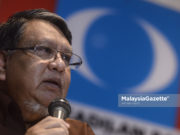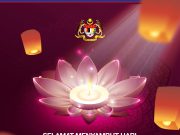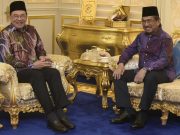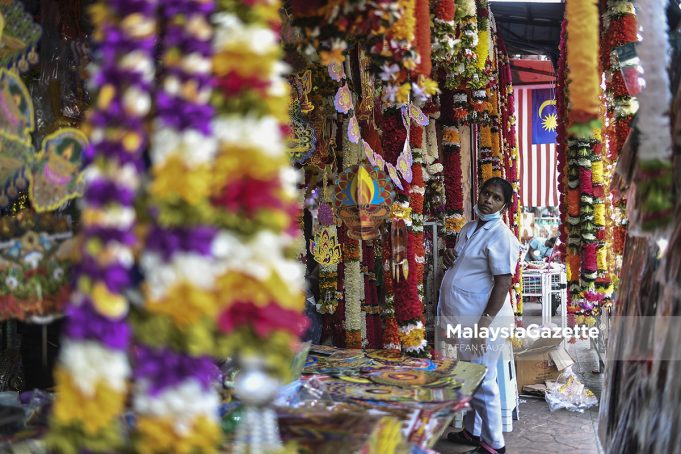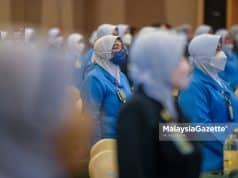MALAYSIA’s multicultural identity is one of its greatest strengths. With various ethnic groups coexisting harmoniously, our nation offers a vibrant tapestry of traditions and celebrations. From Chinese New Year to Hari Raya, Deepavali to Christmas, each festival brings its own colours, sounds, and flavours, symbolizing the richness of Malaysia’s diversity. But beyond individual celebrations, these festivals serve as reminders of our shared humanity, fostering a sense of unity, inclusivity, and mutual respect. In a world often divided, Malaysia’s collective spirit shines through, offering a model of togetherness. As each festival unfolds, the celebrations welcome not just specific cultural groups but friends, neighbours, and communities of all backgrounds, underscoring a profound commitment to harmony and connection.
Malaysia’s multicultural festivals are a testament to the country’s ethos of unity in diversity. Each celebration offers unique customs and practices, yet they all share common values: togetherness, gratitude, and respect for one another. These values resonate with Malaysians across all backgrounds, creating a common ground that binds communities together. During Hari Raya Aidilfitri, for example, Malaysians of all races and religions join in the festivities, visiting friends and neighbours at open houses to share food and stories. Similarly, Deepavali open houses welcome friends from all backgrounds, offering a glimpse into the beauty of Hindu traditions through traditional foods, décor, and music. Christmas, too, invites
Malaysians of all faiths to join in celebrations, lighting up homes and public spaces with festive joy.
This shared participation in each other’s festivals reflects a deep respect for each community’s unique heritage, fostering a collective sense of belonging. As families and friends celebrate these occasions together, they strengthen bonds and enhance the sense of national unity that defines Malaysia. The Role of Open Houses and Community Gatherings One of Malaysia’s most unique practices is the tradition of open houses. From political leaders to local neighbourhoods, open houses invite everyone, regardless of background, to celebrate and enjoy traditional foods, music, and companionship.
These gatherings provide a relaxed setting where individuals can learn about each other’s cultures and customs firsthand. Open houses not only enhance social bonds but also serve as a platform for cultural exchange. Many Malaysians have fond memories of attending open houses hosted by neighbours of different cultural backgrounds, where they experience traditional foods and practices firsthand. These gatherings offer valuable opportunities for mutual learning and understanding, breaking down misconceptions and building bridges across communities.
Educational opportunities for the next generation As Malaysia continues to grow and evolve, educating the younger generation about the significance of multicultural celebrations becomes increasingly important. Schools and community organizations play a crucial role by introducing students to Malaysia’s festivals, their customs, and the values they represent. Through multicultural events, educational programs, and heritage activities, young Malaysians gain a sense of pride in their collective heritage while learning to appreciate diversity.
In some schools, for example, students celebrate festivals together by creating rangoli designs for Deepavali, making ketupat decorations for Hari Raya, or crafting Chinese New Year lanterns. These activities go beyond classroom learning, encouraging students to embrace cultural understanding from an early age. This cultural exposure shapes their values and encourages respect, ensuring Malaysia’s multicultural heritage continues to thrive for generations to come.
Modern influences on traditional celebrations
While Malaysia’s festivals remain rooted in tradition, modern influences and technology have added new layers to these celebrations. Social media platforms are now filled with festival greetings, photos, and videos, allowing people to share their celebrations with friends and family, even if they are miles apart. Young Malaysians have embraced these platforms to spread festive cheer, making their unique cultural heritage visible to a global audience.
In addition, urban communities have started celebrating in new ways that blend tradition with modernity. Shopping malls, for example, now display large-scale decorations for various festivals, offering a festive atmosphere that attracts people from all backgrounds. These public displays enhance awareness and inclusivity, creating shared spaces for everyone to participate in the season’s joy.
While Malaysia has much to celebrate in terms of inclusivity, there are always opportunities to strengthen unity through festivals. Some communities still face challenges related to awareness and representation, and ensuring everyone feels included requires ongoing efforts. For example, workplaces can further support inclusivity by accommodating employees’ requests for leave during their festivals, promoting a respectful and supportive work environment.
By celebrating each other’s festivals more openly, Malaysians can continue to strengthen the fabric of society, paving the way for future generations to inherit a nation where diversity is respected, valued, and celebrated. Social and community initiatives, such as inclusive events, workshops, and dialogues, provide avenues to promote deeper understanding and empathy across different cultural groups, fostering lasting unity.
The spirit of giving and community support
A common theme across Malaysia’s festivals is the spirit of generosity and compassion. During each festival, community groups and individuals engage in charitable acts, supporting the less fortunate through food drives, donations, and volunteer efforts. This culture of giving extends beyond religious boundaries, reminding Malaysians of the importance of community support and shared responsibility.
For instance, during Ramadan and Hari Raya, the tradition of giving zakat supports those in need, while Deepavali often brings community outreach programs where meals and essentials are distributed to underserved communities. Similarly, Christmas and Chinese New Year inspire giving back, with charity drives organized to spread festive cheer. Such acts of generosity foster a sense of compassion that transcends cultural boundaries, bringing Malaysians together in the spirit of shared kindness.
In Malaysia, every festival is a reminder of our shared heritage, a celebration of our collective spirit, and an opportunity to embrace our differences. Each cultural celebration, from Deepavali to Hari Raya and Chinese New Year to Christmas, contributes to the rich mosaic of Malaysian society. By honouring each other’s customs, we build a resilient nation rooted in respect, inclusivity, and unity.
As we gather to celebrate these festivals, may we be reminded that it is our diversity that unites us, making Malaysia a unique and harmonious home for all. The strength of our nation lies in the bonds we share, the traditions we honor, and the commitment to inclusivity that we uphold. Together, as we continue to celebrate our festivals, we reaffirm our dedication to a Malaysia that is as beautiful, diverse, and united as the festivals we cherish.
As conclusion Malaysia’s strength lies in its people’s openness to celebrate each other’s festivals, whether it’s the vibrant lights of Deepavali, the joyous open houses of Hari Raya, the festive cheer of Christmas, or the prosperity welcomed during Chinese New Year. Each celebration is a chance for Malaysians to share in the unique customs of different communities, reinforcing bonds across cultures and fostering mutual appreciation.
As Malaysians come together for these diverse festivities, they honour a collective spirit of inclusivity, where each cultural tradition becomes a shared joy. By embracing and respecting these traditions, we cultivate a harmonious society—one that celebrates not just individual festivals but the unity of all our people.

Nur Hazilah Omar
Lecturer of Faculty of Business and Management
UiTM Sabah Branch, Kota Kinabalu Campus

